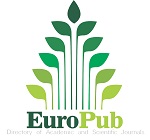Contemporary Trends of Economic Extremism in the Exegesis of Heavenly Books
Abstract
This paper aims at analyzing the effects and tendencies in economic extremism as a phenomenon occurring within the framework of the exegetes of heavenly books. Sacred scriptures such as the Quran, Bible, and Torah are sources of lawful and ethical instructions which have guided billions of people for centuries. Still, the meanings that have been attributed to these texts over years and across diverse cultures differ considerably, thus causing disparities in the perception of concepts relating to economics. The focus given to the economic factor within the narratives is explored in the way that extremism is associated with the interpretation of such texts in the context of globalization, social and economic injustice and political instability. Moving further, it unfolds the postures of interpretations that create radical versions of capitalism, socialism where policies or actions are advocated that benefits the economic aspects without having any concern about rash ethical aspects or social justice There is a focus on the part played by religious leaders, scholars and political leaders who contribute to give interpretations that lead to extreme economic tendencies. It does provide the framework in regards to religious discourse and framing that is used to sanction economic injustice, social and economic subjection and to mobilize violence or war to serve the purpose of amassing economic capital. Furthermore, the topic chosen sheds light on economic extremis as a phenomenon that shapes and influences communities and societies, addressing their effects on social integration, human rights, as well as sustainable development. On a similar note, it underscores the need to critically scrutinize religious scriptures and engage in the dissemination of interpretations that foster the progressive realization of compassionate and moral values of justice and fairness in economic decisions. Lastly, the paper also stresses for the social and religious education to be addressed to the understanding and interpretation of religious messages in regards to the contemporary economic problems and for the formation of the dialogical and ethical process as a response to the economic fundamentalism in order to create rational, effective and humane economy.
Keywords- Contemporary Trends, Economic Extremism, Exegesis Heavenly Books








